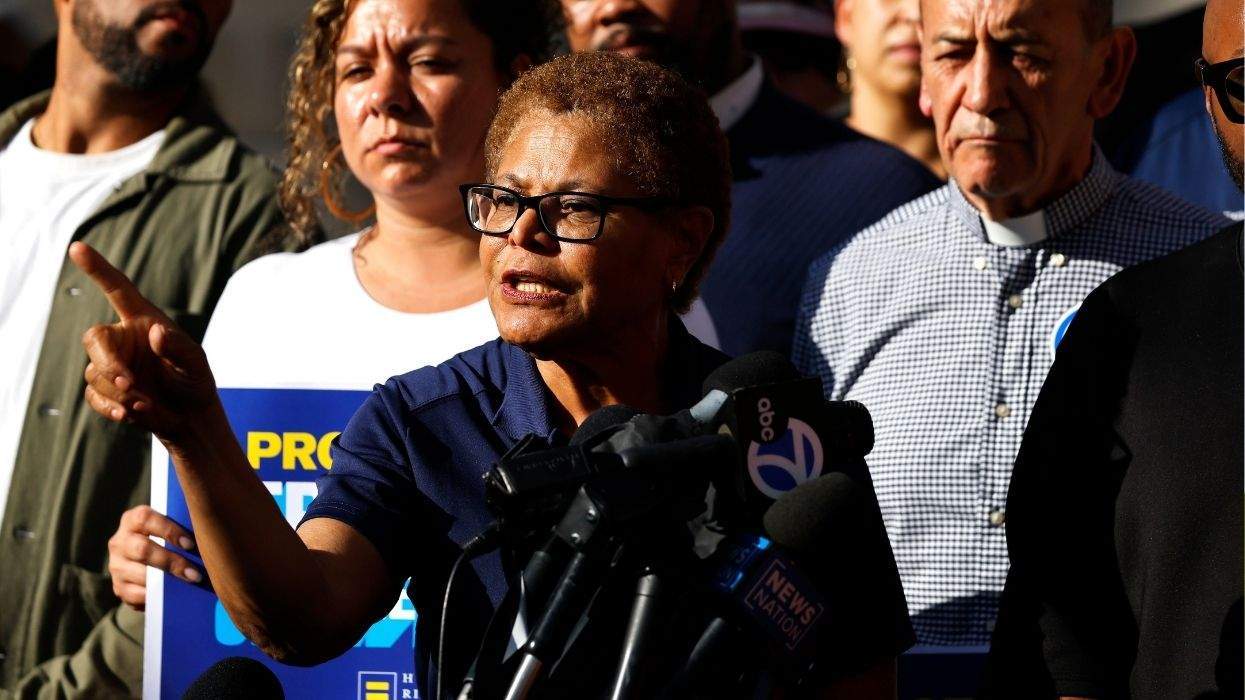Stefan P. Kruszewski, MD, is one of our nation's leading whistle-blowers, exposing fraud and corruption within the medical community and pharmaceutical companies. His findings are changing the marketing of prescription drugs and have gained the respect and attention of the Food and Drug Administration and medical watchdog groups.
With marijuana use now legal in 15 states, Kruszewski wants to shed light on why legalizing marijuana is the wrong thing to do, even though marijuana has tremendous benefits for people with life-threatening diseases, including AIDS.
The Advocate sat down with this Harvard- and Princeton-trained doctor for some answers.
The Advocate: Do you think it's a slippery slope to legalize marijuana?
Stefan P. Kruszewski: In an ideal world it wouldn't be a slippery slope. I advocate, no pun intended, for the medical use of marijuana. I think in hands of people who have glaucoma or HIV wasting syndrome or any end-stage illness, there is a tremendous amount of benefit. Any of those people deserve all the available resources that can reduce their pain burden. The opposite side of that is I see clinically the devastation that people used to write about more often. I think it's gotten less publicity lately of the devastation it's brought particularly to young folk -- and I'm talking ages 10 to 21 who use marijuana excessively.
You support it for patients who could benefit from it, but then how does one evaluate who should be able to have and who shouldn't?
An independent medical evaluation would be really helpful. What I've heard from my colleagues in California -- I have a California license that's active -- they report to me that it's very easy to obtain marijuana for almost any medical problem that you can drum up, and that's my problem. Marijuana increases the risk of psychosis. It decreases your level of attention. It decreases your level of alertness. It decreases your executive function. It decreases the ability to have short-term memory. All of these things, for me, are made much worse in the hands of kids. I think with all the positive information about marijuana, like with any drug, the public should really hear both sides of the issue.
What do you propose those who are for it becoming legal should think about?
Do you want your surgeon to be smoking marijuana? Do you want your airline pilot to be smoking marijuana? Do you want the driver who's coming in the opposite lane of you to be smoking marijuana? Alcohol underscores the majority of automobile accidents in the country. The majority of the crimes. It doesn't make sense to me that patrons would want this legalized.
What specific examples have you seen from people who use marijuana recreationally?
They all have memory problems. It's not that you can't converse. You can sound OK, but if you have to think about things that you've recently learned, that becomes very impaired. I think the lack of motivation that's been described is certainly one issue that I've seen over and over again. The more you smoke, the more you tend to not realize what a problem it becomes.
Since you have cited all of the ill effects of marijuana and are against it being legalized, would it be more cut-and-dried to make it all or nothing -- medicinally and recreationally?
I guess, like with any regulated substance. My fear is that marijuana has been deregulated. We are increasingly regulating cigarettes and using opium for pain So, deregulating the use of marijuana doesn't make any sense to me.
Would you advise someone who came to you to use marijuana for medical reasons?
I have. I don't prescribe it, but I certainly have [advised its use]. When I was doing internal medicine at Harvard, we had a concoction that we'd give people that included tetrahydrocannabinol, which is just the active element in marijuana. I would prescribe that. I gave it to a couple of women who had end-stage ovarian cancer.
Is this a trend that you see going away?
No, I think it's just going to keep building. I don't see it ending. I think it's on the same evolutionary path as gay marriage is. I think it will be a state-by-state basis. I just think we all have an obligation like we do when prescribing medicine: You've got to give both sides of the story. You have to give a no-holds-barred about here are the benefits and here are the risks to the point where the person understands.
The Problem With Pot















